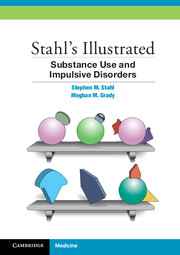Book contents
- Frontmatter
- Preface
- Contents
- CME Information
- Objectives
- Chapter 1 Substance Use and Addiction: An Overview
- Chapter 2 The Neurobiology of Reward and Drug Addiction
- Chapter 3 Alcohol
- Chapter 4 Opioids
- Chapter 5 Nicotine
- Chapter 6 Stimulants
- Chapter 7 Marijuana
- Chapter 8 Other Drugs of Abuse
- Chapter 9 Psychosocial Treatment for Substance Use Disorders
- Chapter 10 Disorders of Impulsivity and Compulsivity
- Summary
- Abbreviations
- References
- Index
- CME: Posttest and Certificate
Chapter 1 - Substance Use and Addiction: An Overview
Published online by Cambridge University Press: 05 February 2013
- Frontmatter
- Preface
- Contents
- CME Information
- Objectives
- Chapter 1 Substance Use and Addiction: An Overview
- Chapter 2 The Neurobiology of Reward and Drug Addiction
- Chapter 3 Alcohol
- Chapter 4 Opioids
- Chapter 5 Nicotine
- Chapter 6 Stimulants
- Chapter 7 Marijuana
- Chapter 8 Other Drugs of Abuse
- Chapter 9 Psychosocial Treatment for Substance Use Disorders
- Chapter 10 Disorders of Impulsivity and Compulsivity
- Summary
- Abbreviations
- References
- Index
- CME: Posttest and Certificate
Summary
From a behavioral perspective, addiction can be conceptualized as an impaired ability to inhibit drug seeking in response to environmental information that should normally suppress the behavior. Neurobiologically, this is linked to alterations in reward and other circuitry that may precede initial drug use (e.g., genetic risk factors) and/or be caused by chronic drug exposure itself.
In this book, we provide the biological background that will enable the reader to understand not only how chronic drug exposure is thought to alter reward circuitry, but also how currently available treatments for various substance use disorders work in the brain. We also review screening, treatment, and general management strategies for patients with addiction to various substances of abuse. In addition, we briefly touch on impulse control disorders that may have neurobiological similarities to drug addiction.
This chapter serves as an introduction to these topics by providing clinical definitions of the various terms used to describe substance use and addiction as well as an understanding of the behavioral progression from occasional, impulsive drug use to compulsive use and addiction.
For most individuals, occasional and controlled drug use remains an impulsive choice driven by positive reinforcement from the drug's rewarding effects. However, for those with risk factors for addiction or excessive drug exposure (see Figure 1.3), this occasional drug use causes neurobiological changes that lead to the development of drug craving, reduced reward on drug exposure, and withdrawal/negative affect state during abstinence (right). Thus, drug addiction can be conceptualized as a compulsive disorder driven by negative reinforcement, wherein the withdrawal symptoms and negative affect during abstinence lead to craving and preoccupation with the drug, with drug use providing relief from these symptoms.
Genetics are also known to affect the vulnerability to addiction; however, there is no single gene linked to addiction. Instead, the data to date suggest that genetic contributions to addiction are the result of the interaction of numerous genetic factors, much like with other psychiatric disorders. It is also possible that epigenetic mechanisms (i.e., changes in gene expression rather than in the genes themselves) contribute to the risk for addiction. For example, early life experiences (e.g., prenatal or early life stress) can cause changes in gene expression that can alter the brain's circuitry and thus increase the risk for the development of addiction.
- Type
- Chapter
- Information
- Publisher: Cambridge University PressPrint publication year: 2012

